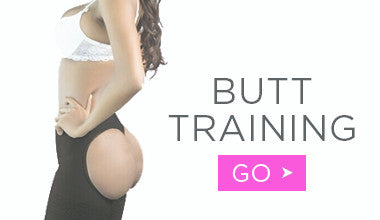
Steps to Take to Strengthen Your Body During Pregnancy
Jan 13, 17Going through pregnancy will leave you with mixed feelings. While the initial news will leave you overjoyed (hopefully), in the months that follow you’ll experience cravings, hormonal imbalance, mood swings and probably exhaustion, but the one thing that will affect you most is the physical change your body is undergoing. Pregnancy brings with it a world of discomfort like you would have never experienced before. Although there will be enough people telling you that it will be all worth it once the baby comes, the nine months will require a lot of patience and strength.
After you give birth, you’ll need to wait around 6 weeks before you can begin exercising and working on your body but there are measures that you can take before delivery that will ensure your body doesn’t get out of hand.
1) Start off at a Healthy Weight

If you’re at the point where you are thinking about having a baby, then its best to get yourself in shape. A toned body before pregnancy will make it easier for you to lose weight post-pregnancy.
Consult your doctor before you get pregnant, and based on your body mass index the physician will let you know if you need to gain or lose weight. Either way, you’re going to want your muscles to be stronger, so engage in exercise that is isn’t too intense. Regular exercise will help you in keeping your mood balanced throughout the pregnancy and also increase your stamina for labor and birth. Because your breasts and belly are going to swell during pregnancy, you are highly advised to start strengthening your core. Improving your body’s pressure absorbing ability will also improve the strength of your back muscles and help in preventing back pain when you’re actually pregnant.
2) Eat Often and Healthy

You’re going to have cravings for food and that’s normal, but you need to make sure you’re not having meals that are too big which can make you feel lethargic. If you’re at a healthy weight then the current guidelines state that you will require 340 extra calories per day in your second trimester and 450 extra calories per day in your third trimester.
You should opt for meals that have a high nutritional value, consisting of lean proteins, fruits and vegetables.
In between meals, it is advisable to eat healthy snacks that will not only provide your baby with much needed extra nutrition but will also prevent you from going overboard during meals.
Constipation is a common problem during pregnancy so you’re going to have to pack on foods with fiber such as apples, pears, grapefruit and plums.
3) Stay Hydrated

Drinking enough water is always a concern for adults because they don’t nearly consume liquids as much as they should. When you’re pregnant, it becomes essential for you to be drinking around 8-10 glasses every day. You can be monitoring your urine in the bathroom to check if you’re hydrated enough. Dark yellow and cloudy urine implies that you need to hydrate yourself better by drinking more water.
Drinking enough water will help you ease constipation as well.
4) Begin a Walking Regime

For ladies who do not exercise regularly, doctors suggest walking 10 minutes every day and then adding another 10 minutes after every 30 days. By the end of the third trimester, new mommies should be walking at least 30 minutes every day.
5) Using a Belly Band

To make you more comfortable during your pregnancy, use a belly band to support your lower back and your belly. Belly bands are especially beneficial for women who are active and are currently going through their second or third trimester. Most pregnant women complain of lower back pain as they have difficulty in carrying the extra weight in the front. Belly bands help by providing your lower back with support and cushion your baby bump when you’re engaged in activities.
The belly band also provides external cues for posture. Having a sore back with a big belly is bound to alter your posture and belly bands exactly prevent this from happening. Belly bands help you to maintain good posture and prevent your back from the stresses of over-exertion.
That being said, make sure your belly band is not too tight because that can have dangerous consequences for you and your baby. It can stop blood circulation and can lead to stunted growth for the baby.
Once you’ve given birth, you can still use your belly band to support muscles that are left weak post-pregnancy like your core, muscles and ligaments because they were put under immense strain during your pregnancy. Many women have found that wearing the belly band post-pregnancy braces the belly and provides support to you lower back. With regular exercise the belly band will help you in getting that desirable hourglass figure back more easily. Once you’ve done away with pregnancy, you can resume your regular exercise patterns but it is highly advisable that you use a waist trainer to help all that unwanted flab get tucked back in perfectly.
Before using a belly band, make sure that you consult your doctor just in case yours is a special case which the belly band is not suitable for (like the baby’s size and position). If you have abnormal blood circulation or blood pressure you should not be wearing a belly band. Only wear the belly-band 2-3 hours a day to stop your belly from becoming over-reliant on it.









